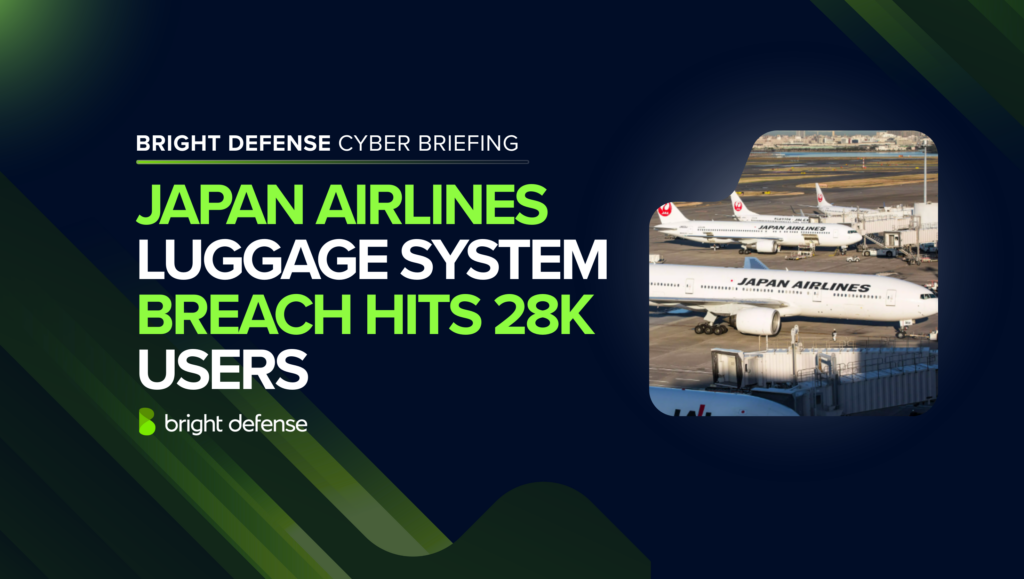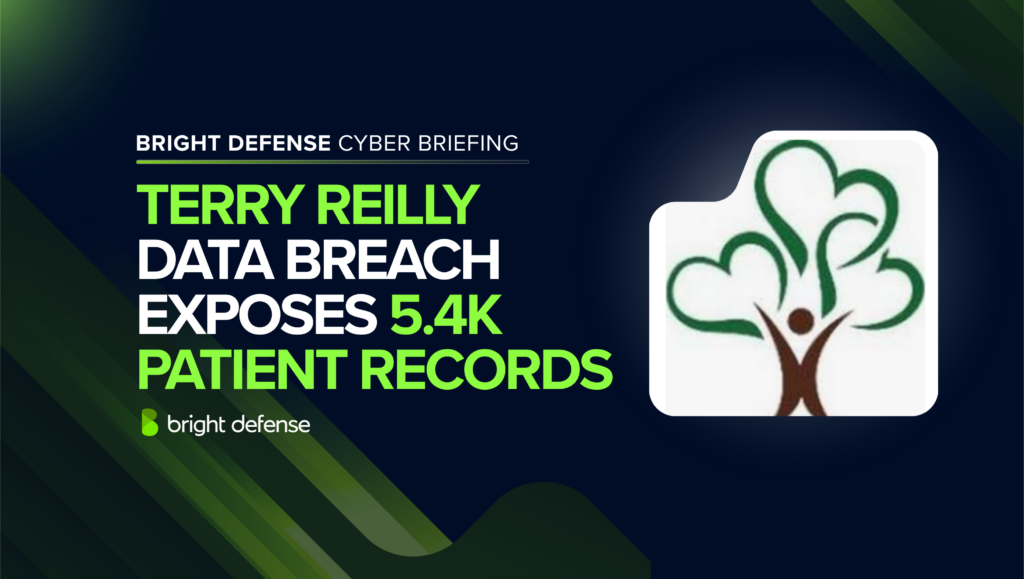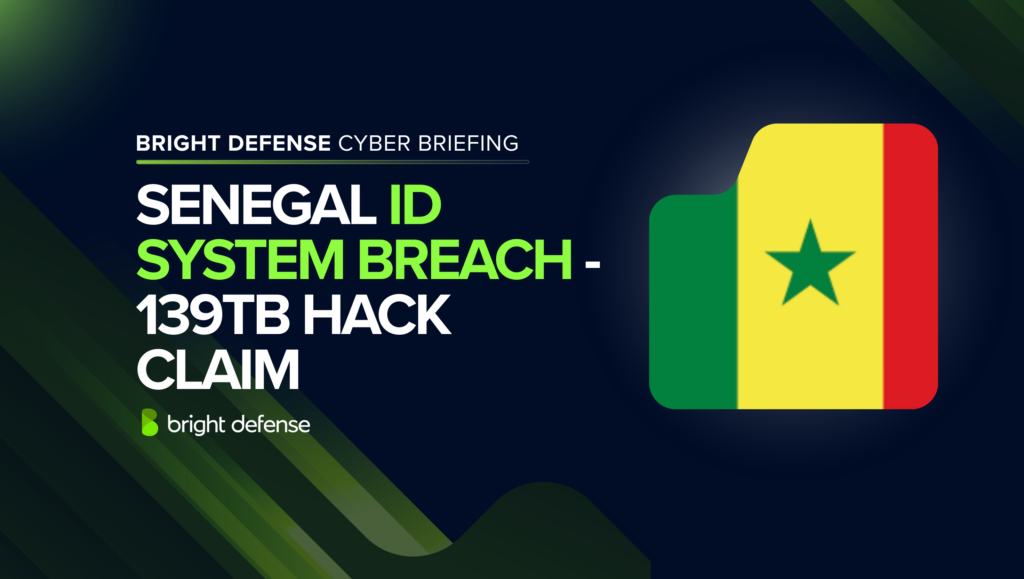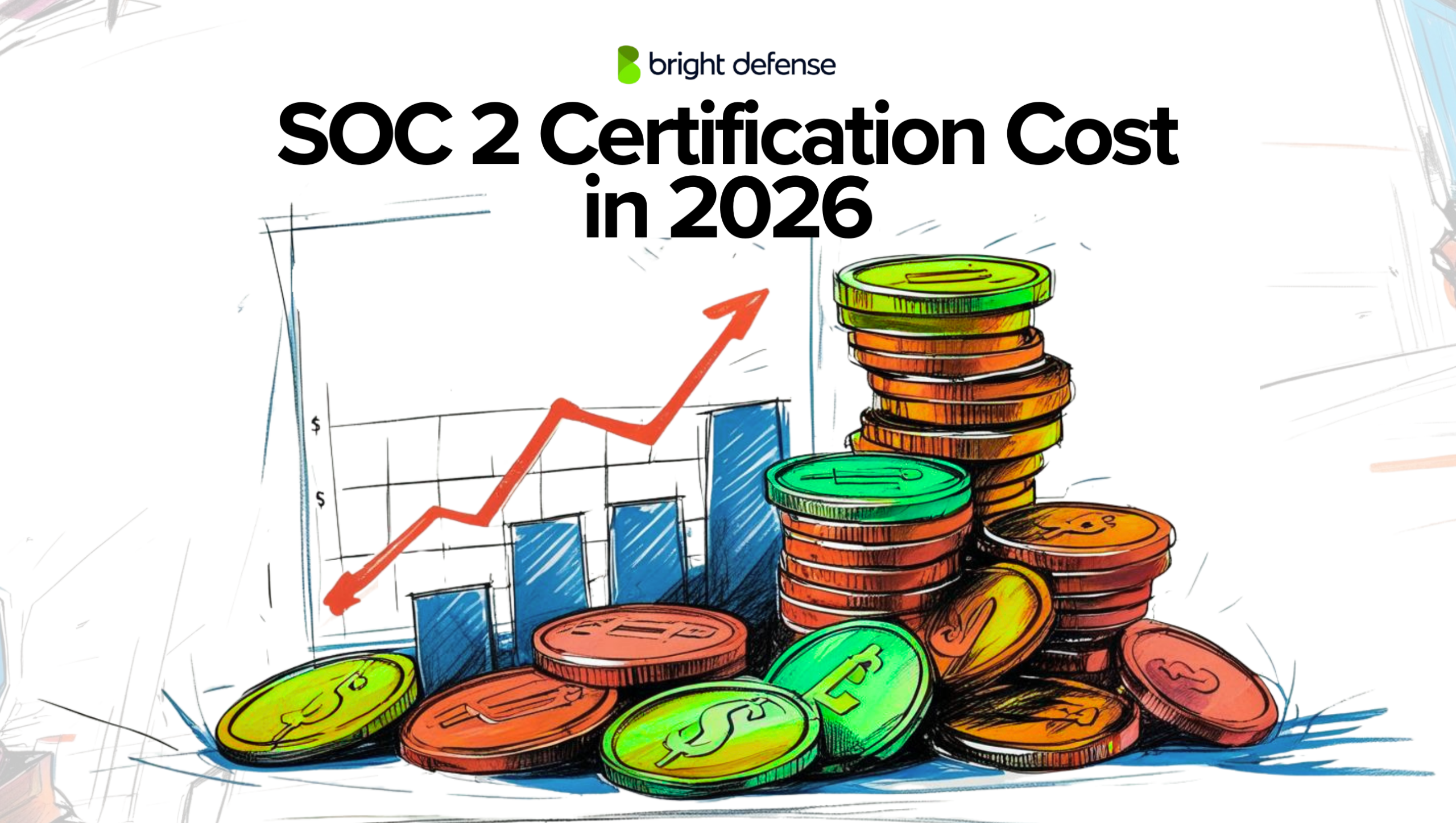
SOC 2 Certification Cost in 2026
Getting a SOC 2 certification is a major milestone for any business, but it’s often clouded by one big question: “How much does it cost?”
The truth is, there’s no single price tag. The cost of a SOC 2 certification can vary dramatically, from as little as $35,000 to over $150,000 for the full process.
This wide range exists because the total expense isn’t just the auditor’s fee; it’s a combination of preparation, implementation, and the audit itself.This guide will break down the true costs of a SOC 2 certification, helping you understand where your money will go and what factors will impact your total investment.
We’ll explore everything from readiness assessments and purchase additional tools to auditor fees and ongoing maintenance, so you can budget accurately and avoid unexpected expenses on your path to compliance.
How Much Does SOC 2 Certification Cost?
SOC 2 certification in 2025 typically costs between $30,000 and$150,000, with smaller SaaS companies often spending $30,000 to $50,000 and larger enterprises frequently exceeding $100,000.
The following outlines the main cost components, including final audit expenses, preparation, and the need for subsequent audits to show systems are operating effectively over time.
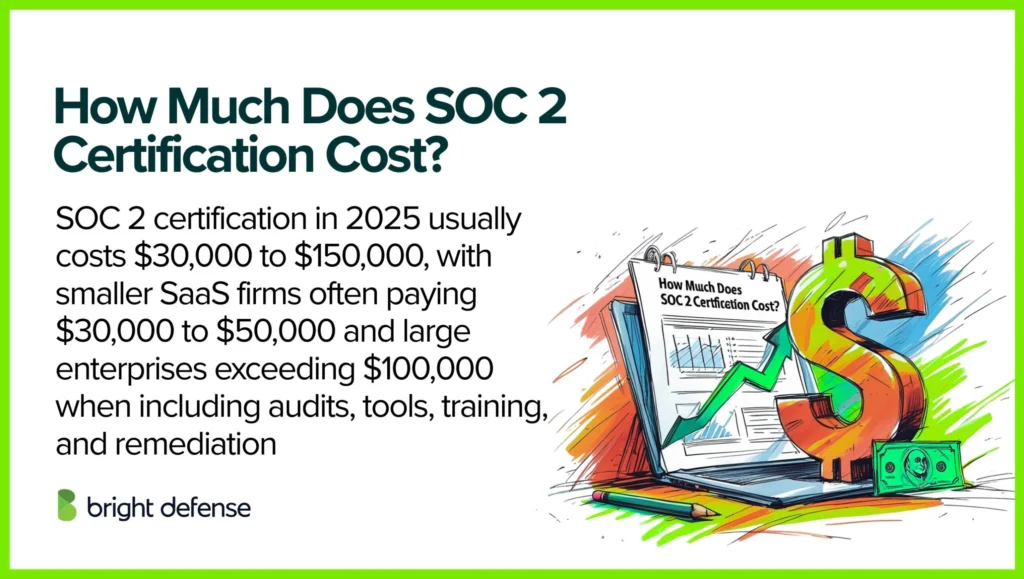
Investments in training employees and strengthening internal controls are also essential, often alongside additional security tools that support audit readiness.
- Readiness & Gap Analysis: Internal prep plus external review from $10,000, with months of remediation for complex systems.
- Security Tools: $48/user/year for device management, $6,000–$25,000 for scanning, and $3,500–$40,900 annually for monitoring or GRC tools.
- Remediation Labor: Senior lead at 50% time for 6 months, costing $50,000–$75,000.
- Training & Legal: $25/user for basic training, up to $15,000 for advanced, and ~$10,000 for legal review.
- Audit Fees: Type 1 runs $5,000–$25,000; Type 2 costs $7,000–$50,000.
How Much Does SOC 2 Type 1 Compliance Cost?
In 2025, most organizations spend $20,000 to $60,000 for SOC 2 Type 1 compliance. The breakdown looks like this, with a focus on audit readiness, support from an audit firm, and the ultimate goal of achieving compliance. Proving operating effectiveness is less extensive in Type 1, but employee training and policy documentation remain critical to success.
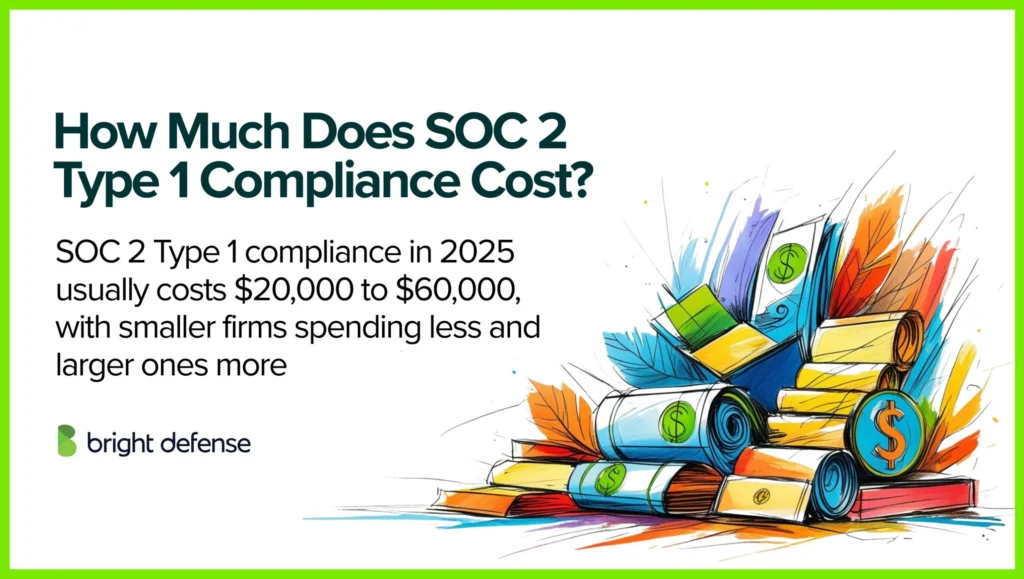
- Readiness and Gap Analysis: $5,000 to $10,000
- Compliance Tools / GRC Platforms: $3,500 to $20,000 per year
- Internal Remediation or Consulting: 100 to 300 staff hours, plus $10,000 to $30,000 if outside help is needed
- Training and Legal Review: $25 per employee for awareness training, $5,000 to $15,000 for specialized training, $5,000 to $10,000 for legal work
- Audit Fee: $5,000 to $25,000 (often quoted at $12,000 to $15,000 for a standard scope)
Smaller firms with limited scope and automation tools usually fall near the lower end, while larger companies that engage consultants and cover multiple Trust Services Criteria trend toward the higher end.
How Much Does SOC 2 Type 2 Compliance Cost?
In 2025, SOC 2 Type 2 compliance costs range from $30,000 to $150,000, depending on company size, scope, and reliance on outside support. Key expenses include the audit itself, continuous monitoring of customer data, and certified public accountants’ fees. Companies also dedicate internal resources across their systems, sometimes involving most of the organization.
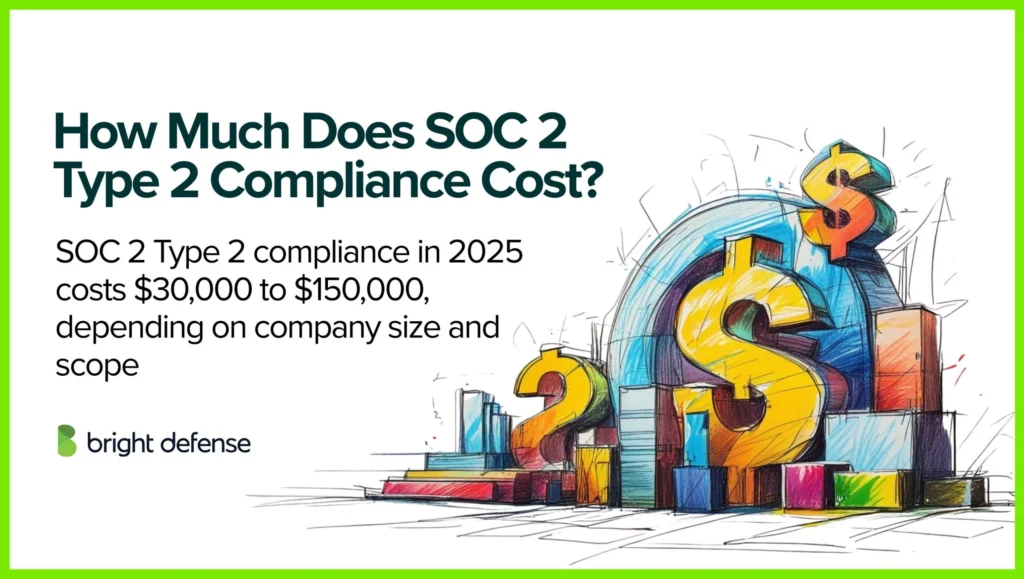
- Readiness and Gap Analysis: $10,000 to $20,000 for consultants or internal leads, since remediation must occur before the observation window
- Compliance Tools and Monitoring: $5,000 to $40,000 per year for automation/GRC tools, plus $10,000 to $30,000 for monitoring (vulnerability management, endpoint security, logging)
- Internal Staff Time and Remediation: 200 to 500 staff hours, estimated at $30,000 to $75,000 in internal labor or consultant fees
- Training and Legal Costs: $25 per employee for awareness training, $5,000 to $15,000 for advanced training, and $10,000+ for legal reviews
- Audit Fee: $7,000 to $15,000 for small environments, $15,000 to $30,000 for mid-size SaaS, and $40,000 to $50,000+ for large enterprises or Big Four engagements
Smaller SaaS startups with limited scope and automation tools often spend $30,000 to $50,000. Mid-size firms with multiple Trust Services Criteria average $60,000 to $100,000, while large enterprises with complex systems and broad scope can reach $120,000 to $150,000+.
Hidden Costs in SOC 2 Certification
Beyond the official audit fee, organizations often face indirect expenses that equal or exceed the auditor’s invoice. Common hidden costs include total cost drivers like labor, consultants, and overhead, as well as internal company politics that slow remediation or shift priorities.
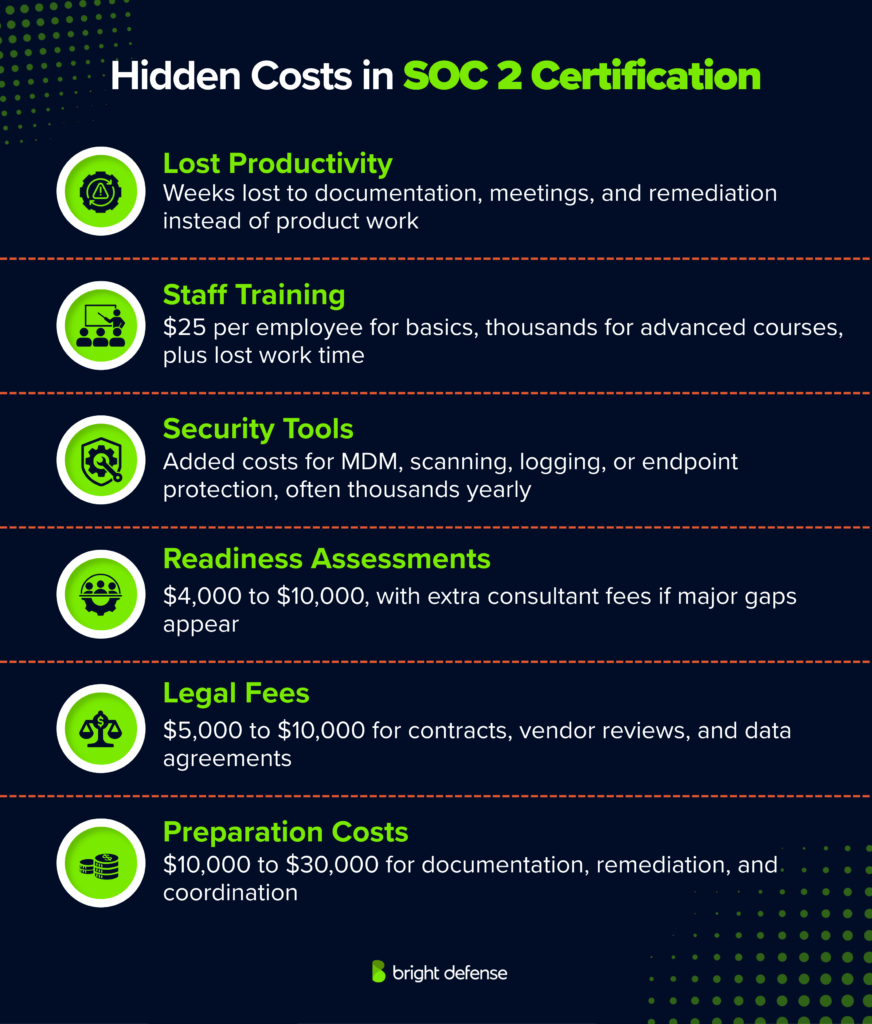
- Lost Productivity: Engineering and operations teams lose weeks to documentation, meetings, and remediation. Feature work and product delivery often slow down while staff focus on access controls, logging, and encryption.
- Staff Training: Awareness training averages $25 per employee, while advanced courses for developers or IT admins can cost thousands. The bigger cost comes from time staff spend away from core duties.
- Security Tools and Infrastructure: New gaps often require investments in mobile device management, vulnerability scanning, log monitoring, or endpoint protection. Licensing can run from thousands to tens of thousands per year, plus staff time to maintain and operate the tools.
- Readiness Assessments: Gap analyses cost $4,000 to $10,000. If significant issues surface, remediation can multiply expenses through extra consultant hours and internal rework.
- Legal Fees: Updated contracts, vendor agreements, and data processing addenda frequently require legal input, with fees of $5,000 to $10,000 even for limited scope reviews.
- Preparation Costs: Documentation cleanup, remediation work, and internal coordination often add $10,000 to $30,000, depending on system complexity and audit scope.
How Much Will An Auditor Charge For A SOC 2 Type 1 Audit?
In 2025, most CPA firms charge $5,000 to $25,000 for a SOC 2 Type 1 audit, with exact fees shaped by scope, size, and auditor selection. These auditor costs depend heavily on the Trust Services Criteria covered, technology stack, and maturity of documentation.
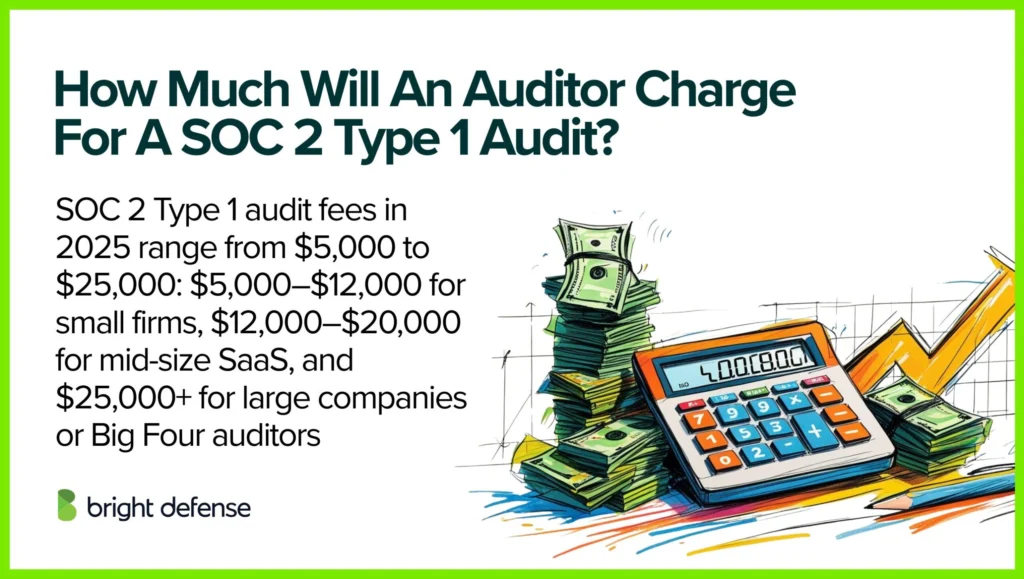
- Small organizations, narrow scope (Security only): $5,000 to $12,000
- Mid-size SaaS with multiple criteria (Security plus Availability or Confidentiality): $12,000 to $20,000
- Large companies or Big Four auditors: $25,000+
Factors that influence pricing:
- Number of Trust Services Criteria (adding Availability, Confidentiality, etc. raises cost)
- Choice of firm (regional CPA vs. Big Four)
- Complexity of systems (multi-cloud, third-party integrations, hybrid infrastructure)
- Quality of documentation (strong policies and controls lower auditor effort)
How to Lower the Cost of a SOC 2 Audit
SOC 2 compliance can feel expensive, but smart planning and strategic choices go a long way toward keeping costs under control. Here are five practical ways to reduce your audit spend without cutting corners.
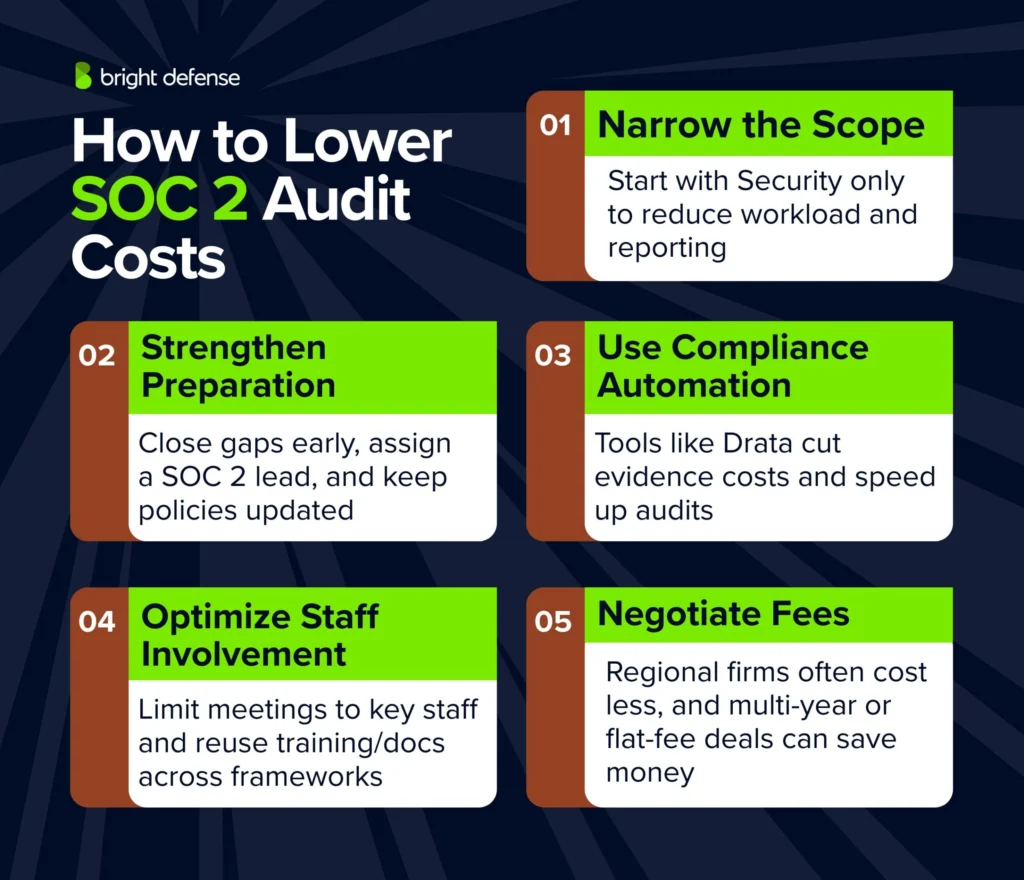
1. Narrow the Scope
Start with the Security criterion instead of all five Trust Services Criteria. Each additional criterion—Availability, Confidentiality, Processing Integrity, or Privacy—adds more work for both your team and the auditor. Keeping the boundary tight lowers compliance reporting requirements and keeps the scope manageable.
2. Strengthen Preparation
A well-prepared organization moves through audits faster and spends less. Run an internal readiness check to close policy gaps before bringing in consultants. Assign a single SOC 2 lead to coordinate tasks and keep evidence flowing smoothly. Updating policies and procedures throughout the year also improves security configurations.
3. Use Compliance Automation
Automation platforms centralize evidence collection and reduce back-and-forth with auditors. Tools like Drata can cut thousands from recurring compliance costs. At Bright Defense, we are a Drata Gold Partner, giving clients discounts, faster onboarding, and hands-on integration support. Automated tracking helps when costs vary based on changes in scope or systems.
4. Optimize Staff Involvement
Be selective with meeting attendance so only essential staff spend time with auditors. Reuse training, policies, and documentation across SOC 2, ISO 27001, and other frameworks to avoid duplicate work. This approach strengthens data security while cutting unnecessary effort.
5. Negotiate to Reduce Auditor Fees
Pricing isn’t always fixed. Regional and specialized SOC 2 auditors often charge less than Big Four firms. Flat-fee contracts can simplify budgeting, and multi-year agreements sometimes come with discounts for repeat audits.
One-Time vs Recurring Costs in SOC 2 Certification
SOC 2 compliance isn’t a single project—it’s a continuing investment. The first audit cycle usually carries one-time expenses, but the real commitment comes from recurring costs that return every year.
One-Time vs Recurring Costs in SOC 2 Certification – Comparison Table
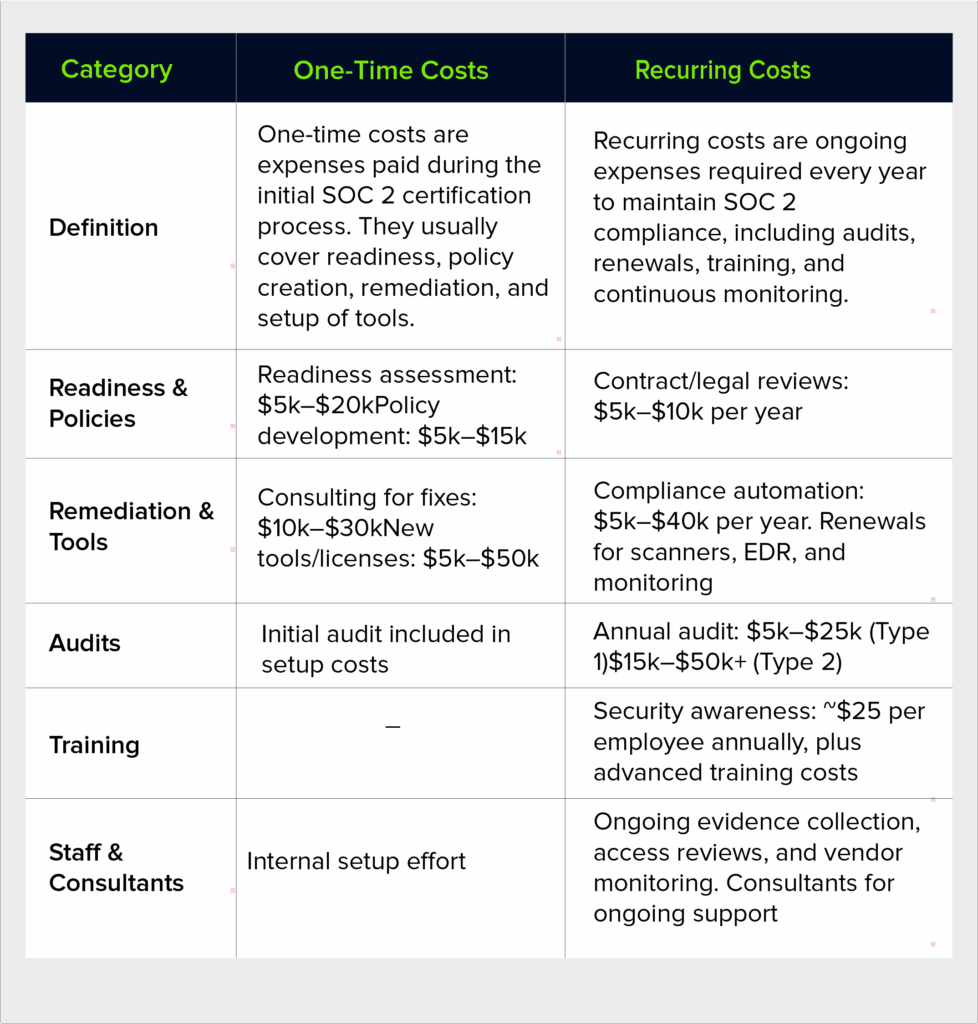
One-Time Costs in SOC 2
One-time costs appear during the initial certification. A readiness assessment helps organizations pinpoint weaknesses, usually costing $5,000 to $20,000. Policy development and documentation may add another $5,000 to $15,000 if outsourced.
Remediation work, such as implementing multi-factor authentication or improving encryption, often requires $10,000 to $30,000 in consulting fees. Many companies also deploy new tools at this stage, with upfront spend on automation platforms or security technologies ranging from $5,000 to $50,000, depending on licenses and integrations. Choosing a firm certified in SOC 2 often raises confidence in the process, while maintaining an accurate asset inventory reduces the risk of missing control coverage.
Recurring Costs in SOC 2
Recurring costs begin once certification is achieved. Annual audit fees range from $5,000 to $25,000 for Type 1 reports and $15,000 to $50,000 or more for Type 2. Compliance automation tools typically run $5,000 to $40,000 per year, while required security awareness training adds around $25 per employee annually, plus thousands more for advanced training.
Legal reviews, contract updates, and privacy agreements usually contribute another $5,000 to $10,000 each year. Beyond direct costs, staff spend hundreds of hours on evidence collection, access reviews, and vendor monitoring, and companies must also renew or maintain scanners, endpoint protection, and monitoring systems. Investing in hiring consultants is common here, as external support helps manage workload. A focus on continuous monitoring also ensures that data breaches don’t derail compliance status.
Build vs. Buy Decisions in SOC 2 Compliance
When planning SOC 2 compliance, organizations face a key decision: build the program internally or buy external support through consultants, automation platforms, or managed services. Each path carries different costs, benefits, and risks, and many companies ultimately blend the two.
Build vs Buy Decisions in SOC 2 – Comparison Table
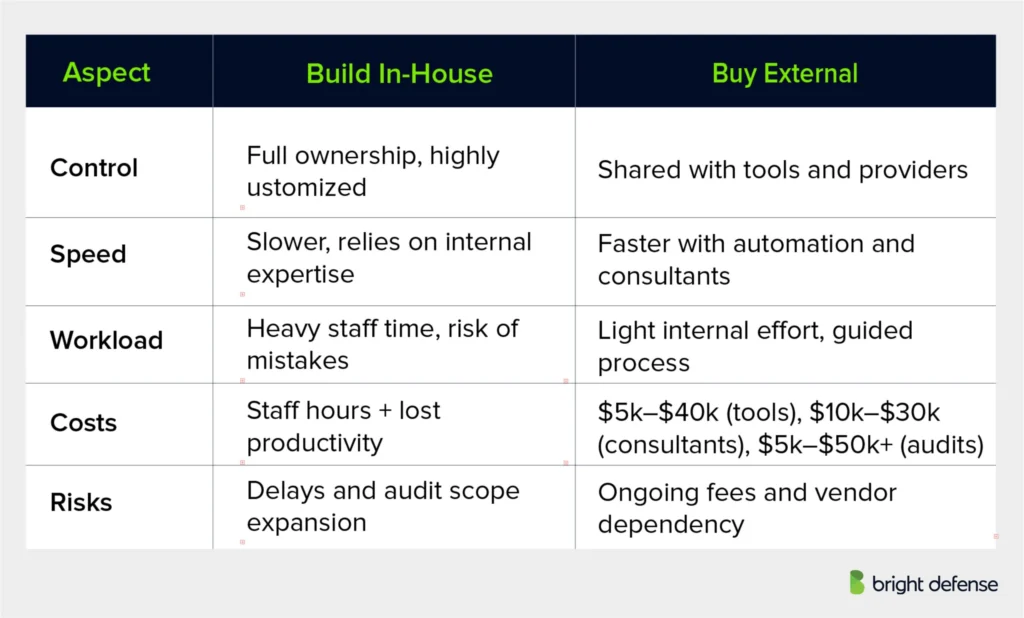
Building In-House
Taking the internal route gives companies complete ownership of their compliance program. This approach appeals to teams that value customization and want direct control over every step of the process. It can work well if a mature security function is already in place, but it often demands more time and resources than expected.
Benefits
- Full control over processes, policies, and evidence collection
- Ability to customize everything to match company culture and engineering practices
- Potential savings if the company already has a mature security team with compliance expertise
Challenges
- Heavy staff time investment to draft policies, manage vendor risk, and prepare for audits
- Higher risk of errors and delays without SOC 2 experience, which can expand audit scope
- Ongoing overhead each year, including evidence collection, training, and control testing
Typical Cost Impact: Hundreds of staff hours annually plus tens of thousands in opportunity cost from slowed product development.
Buying External Solutions
Engaging external solutions shifts much of the workload away from internal teams and introduces experienced partners who specialize in compliance. Pricing depends on the type of solution chosen. Automation platforms like Drata, Vanta, or Tugboat centralize evidence collection and monitoring, typically costing $5,000 to $40,000 annually.
Consultants and virtual CISOs provide policy guidance, remediation support, and project management, often priced between $10,000 and $30,000. Audit services remain non-negotiable, with fees ranging from $5,000 to $25,000 for Type 1 audits and $15,000 to $50,000+ for Type 2. At Bright Defense, our Drata Gold Partnership gives clients exclusive discounts, faster onboarding, and direct integration support, helping lower both upfront and recurring expenses.
Advantages
- Faster readiness through automation and external expertise
- Reduced burden on engineering and operations teams
- Access to senior security knowledge without hiring full-time executives
- Predictable pricing when flat-fee or multi-year contracts are available
Challenges
- Ongoing subscription fees add to annual budgets
- Dependence on external providers for tooling and advisory services
- Costs escalate when multiple Trust Services Criteria or complex environments are included
Hybrid Approach
For most organizations, the best option lies in the middle. A hybrid model combines internal efforts with external support, allowing teams to handle certain policies or remediation tasks while relying on automation platforms and consultants for efficiency and expertise. This approach balances control with practicality and often results in the most predictable outcomes.
How Bright Defense Can Help You
Bright Defense guides you through the SOC 2 process with clarity instead of confusion. Its experts step in early and set up your team for audit success. They help assess your current controls, streamline documentation, and train staff—all focused on reducing surprises and unnecessary expense.
Bright Defense takes care of readiness checks, so your internal teams spend less time figuring out gaps and more time fixing them. They coordinate evidence collection, polish your policies, and guide remediation. By handling that prep work, Bright Defense helps cut the chance of delays or added audit rounds.
Bright Defense also assists with ongoing monitoring tools and audit management, keeping your organization ready for recertification. Their help means less strain on leadership and engineering, and fewer hidden costs over time.
FAQs
No. SOC 2 is an AICPA-based examination/report (an attestation report), not a government-issued certification, and there is no official fixed fee set by AICPA. Cost depends on scope, systems, controls, and auditor choice.
SOC 2 cost usually includes the formal audit fee plus readiness assessment, remediation work, security/compliance tools, and internal staff effort. Multiple sources note that audit fees are only one part of the full budget.
Published guides use different ranges, but they consistently show wide variation. Secureframe says companies can expect about $10k to $60k for the audit alone, Drata lists $12,000 to $20,000 for many small to midsize Type II audits and $30,000 to $100,000 for larger organizations, and Sprinto says Type I can start at $5,000 and Type II at $7,000, with both going up to $50,000.
The biggest cost drivers are audit scope, Type I versus Type II, system complexity, number of in-scope applications and environments, auditor type, and timeline pressure. Schellman also points to customer commitments, scope, and timing as major price drivers.
Readiness and prep can add a meaningful amount. Secureframe says readiness assessments typically cost $10,000 to $17,000, while another CPA source (Pun Group) lists $3,000 to $15,000 for readiness, and Secureframe also notes consulting can add $25,000 to $85,000 depending on scope.
Yes, starting with Type I is often the lower-cost and faster first step if your customer accepts it. Type II costs more because it tests control operation over a period of time, and AuditBoard notes a Type II covers a period that can be as little as three months while Drata also explains the added planning and wait time.
No. Compliance software can help with evidence and preparation, but the final SOC 2 report still comes from a CPA organization that performs the audit. Drata and Vanta pricing pages show platform plans, and AuditBoard states only CPA organizations can conduct SOC 2 audits and issue reports.
Prepare your scope details first, including the product/service in scope, trust criteria, systems and apps, locations, and timing target. A-LIGN’s buyer guide also recommends asking what the quote includes, rates, timelines, and audit experience, while Schellman lists scoping details as a core pricing input.
SOC 2 costs are high because pricing depends on audit type, scope, audit length, and company complexity, and the total spend also includes internal staff time, security tools, consultants, and remediation work. Drata lists Type 2 audit fees at roughly $12,000 to $100,000+, with total costs often rising when prep work is added.
A SOC 2 report is generally treated as valid/current for 12 months, so many companies renew annually. Secureframe notes that reports do not technically “expire,” but customers often treat reports older than a year as outdated or stale. A-LIGN also states final SOC 2 reports are generally valid for 12 months.
Yes, it can be hard, especially for a first-time company, because you need documented controls, evidence, and a period of operation for Type 2 testing. The more accurate term is SOC 2 attestation, not certification, because AICPA defines SOC 2 as an examination/report and vendors note there is no official certifying body.
Get In Touch

